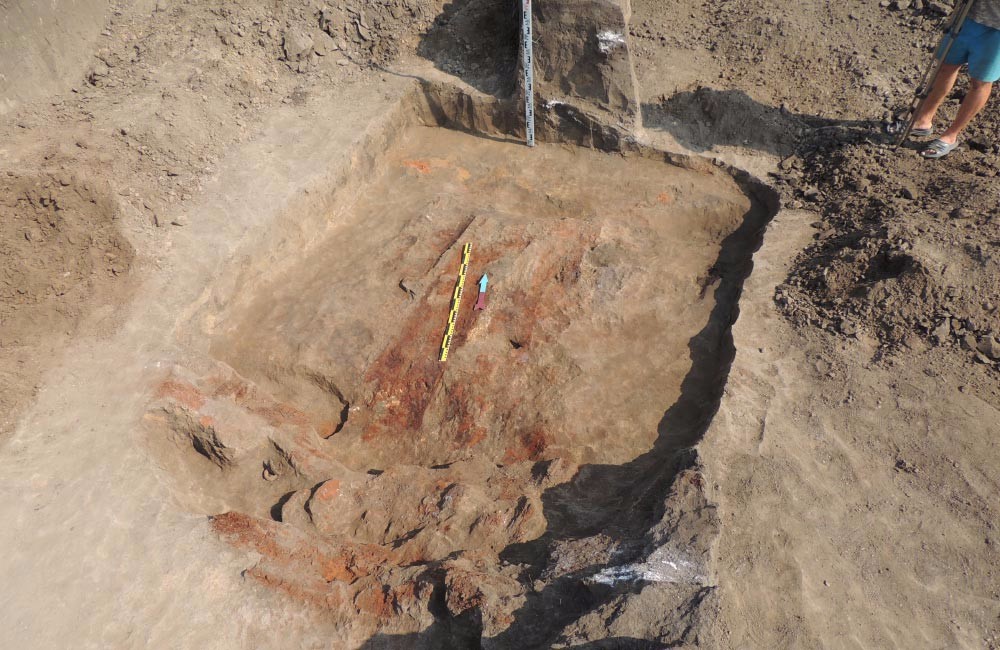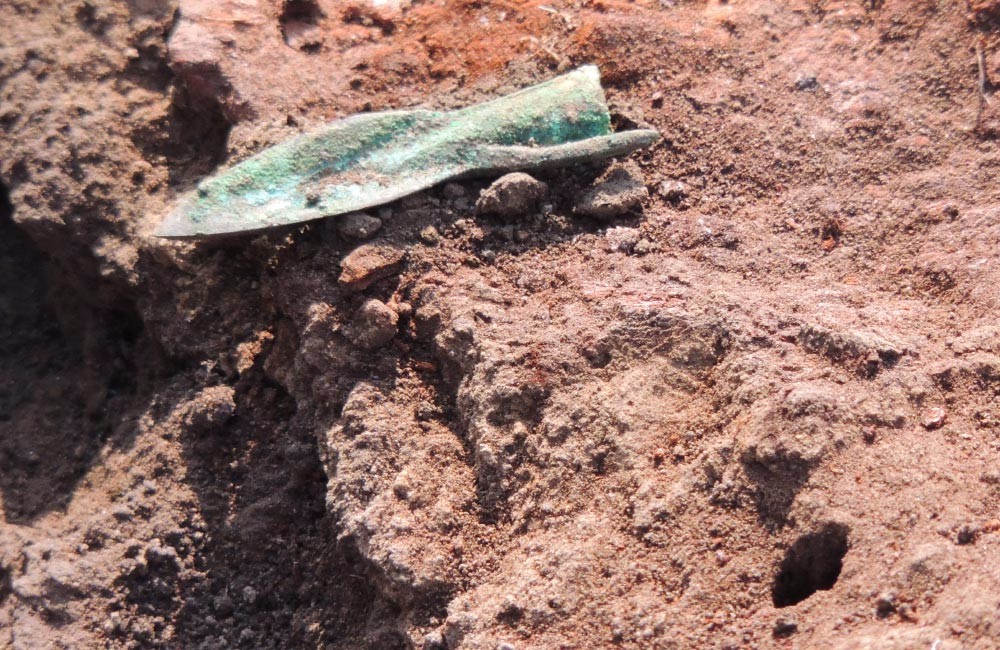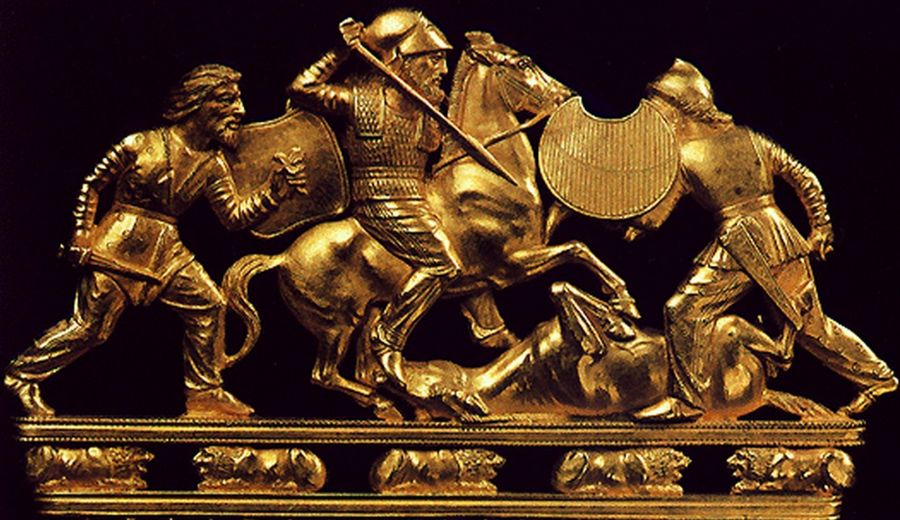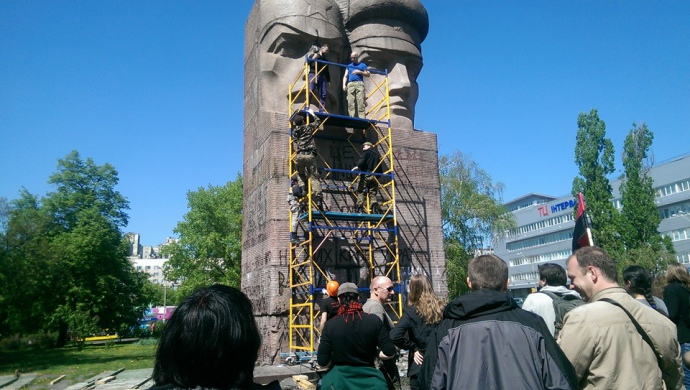About 30 pieces of Scythian gold have been found in a kurhan (burial mound) in Bilsk, Kotelevsky District, Poltava Oblast.
Scholars and archaeologists started exploring the ancient city of Gelonus 110 years ago. According to the Greek historian Herodotus (484–425 BC), Gelonus was the capital of the Scythian tribe Budini. In his account of Scythia, Herodotus writes that the Gelonii were formerly Greeks, having settled away from the coastal towns among the Budini, where they “use a tongue partly Scythian and partly Greek”:
“The Budini for their part, being a large and numerous nation, are all mightily blue-eyed and ruddy. And a city among them has been built, a wooden city, and the name of the city is Gelonus. Of its wall then in size each side is of thirty stades and high and all wooden. And their homes are wooden and their shrines. For indeed there is in the very place Greek gods’ shrines adorned in the Greek way with statues, altars and wooden shrines and for triennial Dionysus festivals in honour of Dionysus...
Above the Sauromatae (Sarmatians), possessing the second region, dwell the Budini, whose territory is thickly wooded with trees of every kind. The Budini are a large and powerful nation: they have all deep blue eyes, and bright red hair. The Budini, however, do not speak the same language as the Geloni, nor is their mode of life the same. They are the aboriginal people of the country, and are nomads. Their country is thickly planted with trees of all manner of kinds. In the very woodiest part is a broad deep lake, surrounded by marshy ground with reeds growing on it. Here otters are caught, and beavers, with another sort of animal which has a square face...”
Many expeditions have been organized in the area, but no precious objects were discovered during the digs... until today.


Stanislav Zadnikov, senior fellow at the Museum of Archaeology of the Karazin Kharkiv National University.
“I’ve never found so much gold. Once I found a plaque measuring 1 cm by 1 cm, but here we’ve found several dozen!”

Related:
- Anna of Kyiv, the French Queen from Kyivan Rus
- Stolen ancient viking's sword from the dawn of Kyivan Rus comes back home to Ukraine
- Dutch museum returns some items of Crimean Scythian gold to Kyiv
- Crimean history. What you always wanted to know, but were afraid to ask
- How Moscow hijacked the history of Kyivan Rus'
- Top five national symbols of Ukraine
- Genetic testing proves Putin is wrong about Crimea and Crimean Tatars





